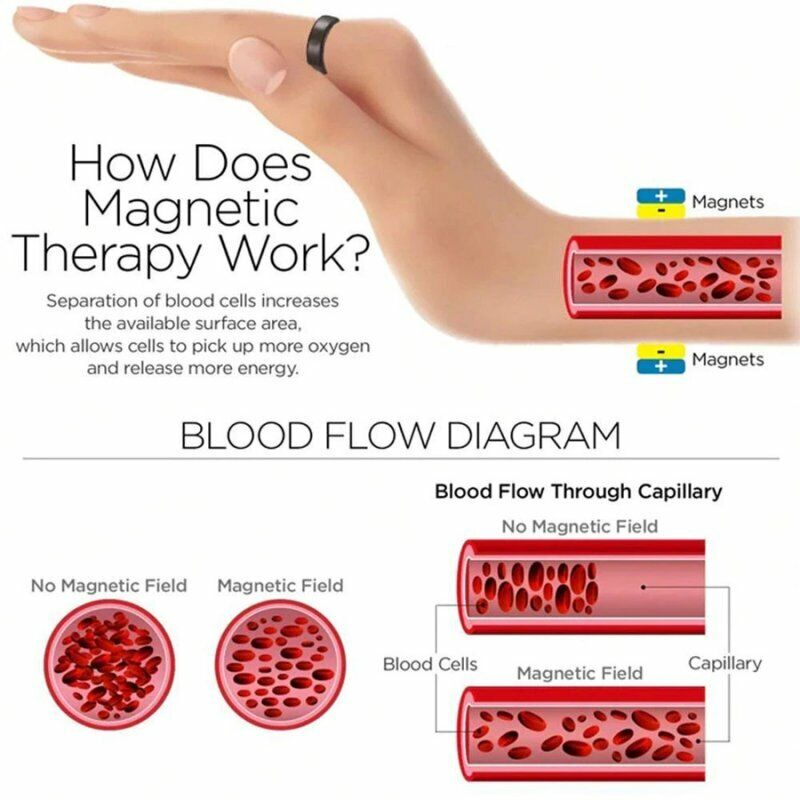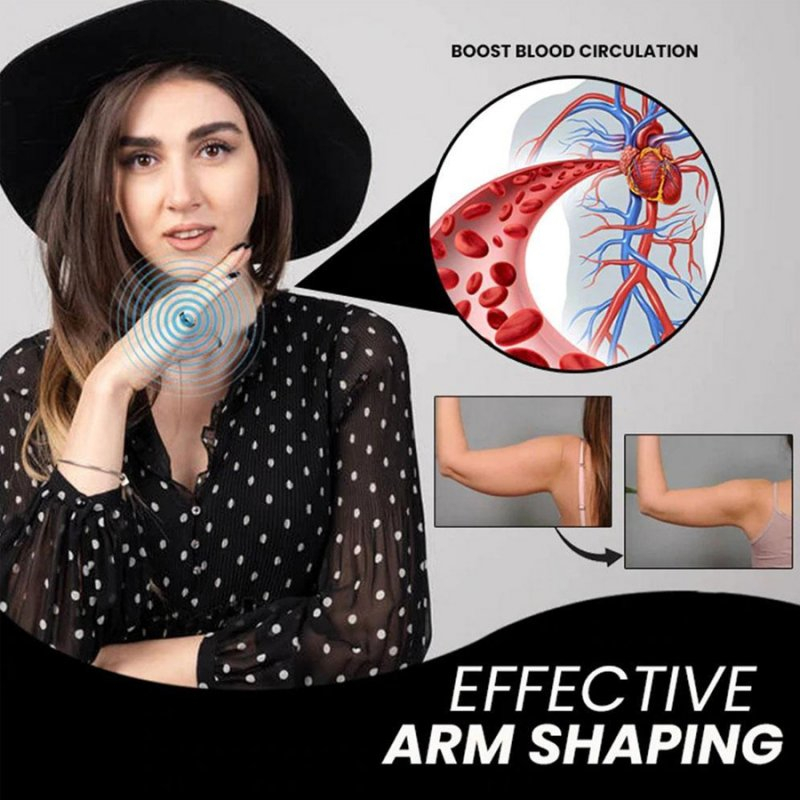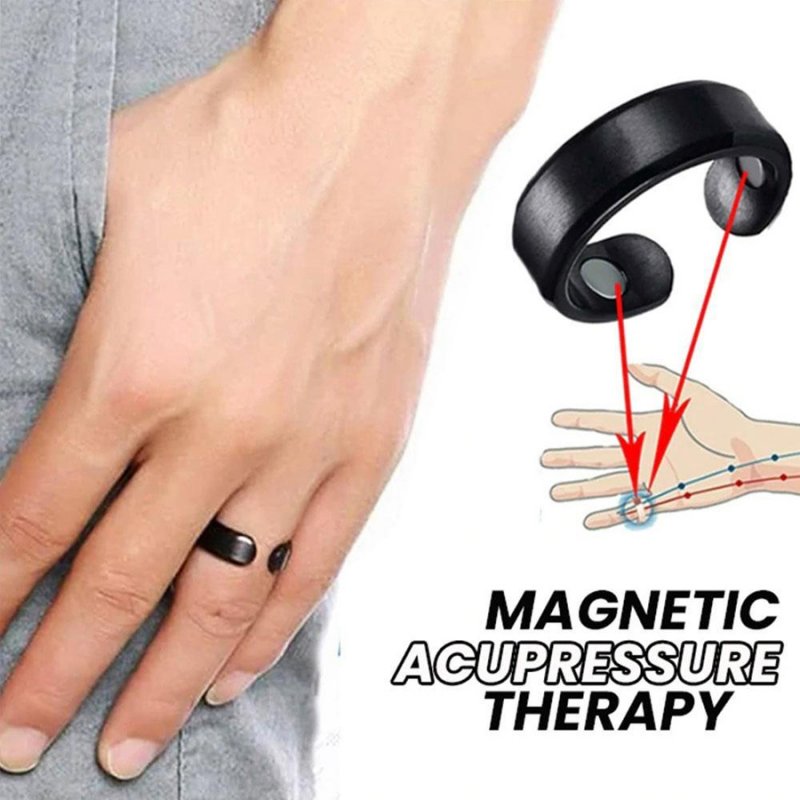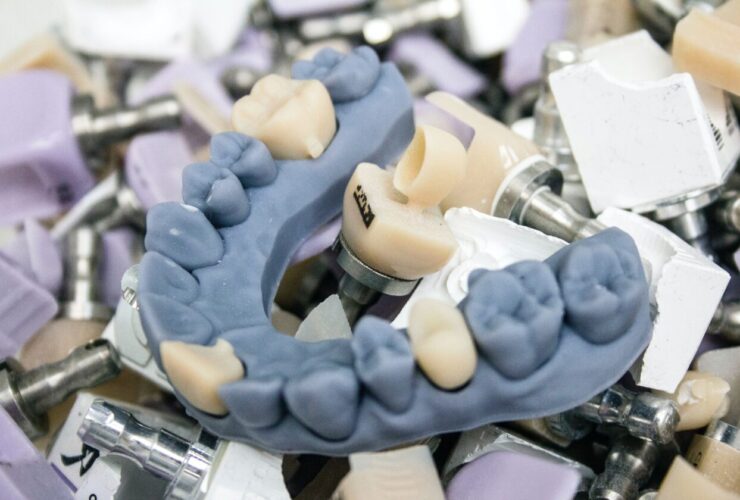Introduction
In recent years, weight loss rings and other wearable technologies have garnered significant attention as potential tools for weight loss. These rings’ producers frequently advertise them with alluring claims of effortless weight loss, offering consumers a quick fix to shed extra pounds. These items appeal to individuals seeking fast remedies or non-traditional weight loss methods due to their simplicity and ease of use. Consequently, many people wonder, “Do weight loss rings really work?”
Amidst the hype surrounding weight loss rings, a fundamental question arises: do these gadgets live up to the claims? To get to the bottom of this issue, this essay will investigate the effectiveness of weight loss rings from a scientific perspective. We aim to shed light on whether these rings are genuinely useful aids for weight management or just another gimmick in the crowded industry of fitness and wellness items by carefully examining the available data and professional comments.
This post will delve into several aspects of weight loss rings’ controversy. We will not stop until we have the whole story, from understanding the mechanisms that underpin their operation to analyzing the scientific evidence—or lack thereof—that demonstrates their effectiveness. Additionally, we will address common myths and problems related to these gadgets so that readers may make well-informed decisions regarding their journeys toward health and wellness. Join us as we sort truth from fiction and unravel the mysteries surrounding weight loss rings.
Understanding Weight Loss Rings
Wearable gadgets called weight loss rings are promoted as tools for those on a weight loss journey. They promise consumers an easy way to lose extra weight, claiming to use multiple mechanisms to aid in weight loss. These rings frequently have audacious claims about their ability to increase metabolism, reduce hunger, or change bioenergetic fields to help with weight loss. Nonetheless, there is ongoing discussion regarding these assertions’ scientific validity.
There are many types of weight loss rings, each with advantages and special features. For example, magnetic rings work based on magnetic therapy, which postulates that the rings’ electromagnetic charge can clear the body of blockages and aid in weight loss. Contrarily, moissanite rings are touted for their purported capacity to modify bioenergetic fields, utilizing energy flow to support weight loss. The main query remains: do these rings live up to the hype, regardless of the variety in style and features?
There are several ideas regarding the supposed workings of weight reduction rings, from magnetic therapy to changes in bioenergetic fields. Using magnets’ strength, magnetic rings claim how they affect satiety, hunger, and metabolism. These gadgets’ proponents contend that the magnet’s north pole can boost metabolism and improve calorie burning. Similarly, it is thought that moissanite rings affect bioenergetic fields, modifying the body’s energy flow to encourage weight loss. Skeptics, however, draw attention to the lack of scientific data proving these assertions, emphasizing the necessity for more studies to confirm the efficacy of weight loss rings.
This section thoroughly analyzes weight loss rings, their variants, scientific validity, and alleged causes. Readers can decide whether or not these devices are effective weight-reduction tools by being aware of the nuances of these technologies. Please keep checking back as we explore the issue surrounding weight loss rings in more detail and reveal the veracity of their claims.
Debunking the Claims

Despite the manufacturers ‘ audacious claims, scientific data disproves the efficacy of weight loss rings as instruments for meaningful weight loss. Many investigations into the supposed workings of these rings—such as magnetic therapy and modified bioenergetic fields—have yielded conflicting results on their ability to help people lose weight. An increasing amount of research indicates that these gadgets provide negligible to no real help in managing weight.
Medical professionals, dietitians, and fitness specialists have all expressed their opinions on weight loss rings. Many doubt these devices’ effectiveness, pointing to a need for more reliable scientific information and stressing the significance of evidence-based weight loss strategies. Moreover, research investigating the effects of magnetic therapy and bioenergetic modification on metabolism and regulation of weight has yet to produce noteworthy findings, which further calls into question the assertions made by producers.
Even while weight loss rings are widely available, more reliable scientific evidence is still needed to support their claims. Instead of conducting thorough scientific studies, manufacturers frequently rely on marketing strategies and anecdotal evidence to help their product offerings. Customers are thus left with hollow promises and unrealistic expectations, which causes them to become frustrated and disappointed in their attempts to lose weight. People must approach weight loss rings with care and skepticism in the lack of hard data, prioritizing evidence-based methods for reaching their weight loss objectives.
Critique of Weight Loss Scams and False Promises

One of the many products in the weight loss market that offers alluring claims of effortless weight loss is weight loss rings. These products frequently make the promise that users need to put in little effort to reduce hunger, increase metabolism, or melt fat. The truth, though, is far different from these lofty assertions. The long-term efficacy of these products is dubious at best, even if some people may report brief weight loss or placebo effects. Customers must carefully examine the supporting evidence for such statements and treat them with suspicion.
Weight loss ring producers frequently take advantage of people’s anxieties and need for fast cures with their marketing tactics. These strategies, which range from eye-catching ads with before-and-after pictures to celebrity endorsements, are meant to instill a sense of urgency in viewers and persuade them that their product is the answer they’ve been looking for. Beneath the flash and glamour, though, is a need for more openness and scientific proof of the actual efficacy of these rings. Users should exercise caution and do extensive research before purchasing any weight loss product.
It can be difficult to tell what is real from what is a scam in a crowded industry full of promises of quick weight reduction and miraculous cures. Consumers should give evidence-based weight loss strategies like eating a balanced diet, exercising frequently, and consulting healthcare providers as top priorities to avoid falling for deceptive claims. Furthermore, it’s critical to exercise caution regarding items that make grandiose promises or lack reliable scientific backing. Consumers can better judge their health and well-being by being informed and critically analyzing weight reduction products and marketing claims.
Alternative Approaches to Weight Loss

Although weight reduction rings might provide instant results, evidence-based methods offer a more long-term solution for reaching and keeping a healthy weight. Diet and exercise are the main pillars these programs usually center around. By implementing a well-rounded strategy emphasizing diet, exercise, and behavior modification, people can attain enduring outcomes without depending on gimmicky goods.
A healthy diet, consistent exercise, and behavioral modifications are the cornerstones of effective weight loss programs. People should put long-term lifestyle adjustments that improve general health and well-being ahead of short-term fixes. This entails eating nutritious meals, exercising frequently (including cardiovascular and strength training), and gradually changing daily routines and habits.
Healthcare professionals can provide vital help when navigating the challenging weight loss process. These professionals, from personal trainers and doctors to licensed dietitians and nutritionists, can offer individualized advice and support catered to each person’s requirements and preferences. By collaborating with healthcare professionals, people can obtain evidence-based interventions, accountability, and continuous monitoring to ensure their weight reduction journey is safe, effective, and sustainable.
Do Weight Loss Rings Really Work?
A. Short Answer: Weight loss rings are often marketed as effortless solutions for shedding excess weight, but their effectiveness is dubious at best.
B. In-depth Analysis: Despite the marketing claims surrounding weight loss rings, scientific research fails to validate their efficacy. There is a lack of substantial evidence supporting the effectiveness of weight loss rings. Furthermore, the purported mechanisms behind these rings, such as magnetic therapy, need more empirical evidence to substantiate their weight loss benefits.
Moreover, while weight loss rings may offer a convenient solution, sustainable weight loss requires more than a simple accessory. Meaningful and lasting weight management necessitates comprehensive lifestyle changes, including dietary adjustments, regular exercise, and behavior modification.
In conclusion, weight loss rings fall short of the promises made by their manufacturers. Relying solely on these devices for weight loss is not advisable. Instead, individuals should prioritize evidence-based strategies, such as maintaining a balanced diet, engaging in regular physical activity, and seeking guidance from healthcare professionals to achieve their weight loss goals safely and effectively.
Weight Loss Ring FAQ
- How does a weight loss ring work?
Weight loss rings claim to work through mechanisms like magnetic therapy or altering bioenergetic fields. However, scientific evidence supporting these claims must be improved, making their effectiveness uncertain. Sustainable weight loss typically requires comprehensive lifestyle changes, including diet modifications and regular exercise.
- Does weight loss jewelry work?
The efficacy of weight loss jewelry, including rings, is questionable. While some individuals may experience temporary effects, insufficient scientific evidence supports long-term weight loss. Sustainable weight management requires evidence-based strategies, such as a balanced diet and regular exercise.
- Does the magnetic ring work?
Magnetic rings are marketed as weight loss aids based on the theory that magnetic fields can stimulate acupressure points associated with weight loss or metabolism. However, research on the effectiveness of magnetic therapy for weight loss needs to be more conclusive. While some may report subjective benefits from wearing magnetic jewelry, scientific evidence supporting its efficacy remains lacking.
- How much weight do you lose to changing ring size?
The weight loss required to change ring size varies depending on factors such as individual body composition, genetics, and where the weight is lost. Significant weight loss, typically around 10-20 pounds or more, may lead to noticeable changes in finger size and require resizing of rings for a comfortable fit.
- Can you lose weight with a belly ring?
Belly rings, or navel piercings, do not directly contribute to weight loss. While some individuals may engage in belly dancing or other physical activities associated with belly rings, additional dietary modifications and exercise will likely result in significant weight loss.
- Is wearing magnetic jewelry safe?
Wearing magnetic jewelry is generally considered safe for most people. However, individuals with certain medical conditions or implanted medical devices, such as pacemakers or insulin pumps, should consult a healthcare professional before using magnetic jewelry, as it may interfere with these devices.
- How to lose weight fast?
While rapid weight loss may be achievable through extreme calorie restriction or fad diets, it is not recommended for long-term health and may lead to adverse effects. Instead, sustainable weight loss is best achieved through gradual changes to diet and exercise habits, focusing on consuming nutritious foods, staying physically active, and seeking support from healthcare professionals or registered dietitians.
- Does a gold ring lose weight?
Gold rings do not lose weight in the context of weight management or body composition changes. In this context, “losing weight” typically refers to reducing body fat or overall body mass, which is unrelated to the weight of a gold ring.
- How does the weighted hoop make you lose weight?
Weighted hoops, or weighted hula hoops, can provide a cardiovascular workout and engage core muscles when used regularly. However, they alone are unlikely to lead to significant weight loss. Like other forms of exercise, incorporating weighted hoops into a comprehensive fitness routine may contribute to calorie burning and overall physical fitness. Still, sustainable weight loss typically requires dietary modifications and regular exercise.
- How does the infinity hoop help you lose weight?
The “infinity hoop” is commonly associated with certain hula hoops used for fitness. While hula hooping can provide cardiovascular exercise and engage core muscles, leading to potential calorie burning and improved physical fitness, it is not a guaranteed method for weight loss. Effective weight management involves a combination of balanced nutrition, regular exercise, and lifestyle modifications.
- Will my fingers shrink if I lose weight?
Weight loss can lead to reductions in body fat and overall body size, which may result in changes to finger size. However, the extent of these changes varies among individuals and depends on genetics and where the weight is lost. Significant weight loss may lead to noticeable changes in finger size and require resizing of rings for a comfortable fit.
- Will my ring size change if I lose 20 pounds?
Losing 20 pounds may lead to changes in body composition and overall body size, potentially resulting in changes to finger size and ring fit. However, the extent of these changes varies among individuals, and factors such as genetics and where the weight is lost can influence the degree of change in ring size.
- Do hands get slimmer with weight loss?
Weight loss can reduce body fat and overall body size, resulting in slimmer hands and fingers for some individuals. However, the degree of slimming varies among individuals and depends on genetics and where the weight is lost. Consistent physical activity and a balanced diet can contribute to overall weight loss and improvements in body composition.
Conclusion
We’ve covered a lot of ground in our talk about weight loss rings, including their workings, effectiveness, and related disputes. First, we looked at the appeal of weight reduction rings and their purported effectiveness, considering different aspects, including magnetic therapy and changed bioenergetic fields. We next examined the scientific evidence—or lack thereof—and dispelled several widespread rumors and misunderstandings about these gadgets. We also answered many commonly asked questions, clearing up issues like the possibility of changing finger sizes after losing weight and the security of wearing magnetic jewelry.
Despite the marketers ‘ alluring claims, there isn’t any scientific proof to back up the effectiveness of weight loss rings. While some people may wear these accessories and experience placebo benefits or brief decreases in hunger, long-term weight loss or changes in metabolism are not well supported by the available data. Customers must, therefore, prioritize evidence-based weight control strategies and view weight loss rings with suspicion.
Prioritizing weight loss techniques supported by empirical research and scientific studies is essential. Consider making durable lifestyle changes like eating a balanced diet, exercising regularly, and consulting with doctors or licensed nutritionists instead of depending on gimmicks or fast fixes like weight loss rings. You can start down the path to long-term health and well-being by concentrating on evidence-based methods and avoiding the traps of deceptive advertising and misleading promises. Recall that long-term, sustained weight loss requires commitment and patience, but the benefits are worth the trouble.
Reference
Rachel Reiff Ellis. (2017, May 31). What Is Magnetic Field Therapy? WebMD; WebMD. https://www.webmd.com/pain-management/magnetic-field-therapy-overview
(2010, October 24). LIVESTRONG.COM. https://www.livestrong.com/article/287480-ear-magnets-for-weight-loss/
Zamora, D. (2004, February 25). Quick Weight Loss or Quackery? WebMD; WebMD. https://www.webmd.com/diet/features/avoiding-quick-weight-loss-gimicks
[ THE SCIENCE OF MEDICINE S T E V E N N O V E L L A. (n.d.). 26. Retrieved February 5, 2024, from https://cdn.centerforinquiry.org/wp-content/uploads/sites/29/2011/01/22164343/p26.pdf
Clinic, C. (2018, July 2). Can Copper or Magnetic Bracelets Ease Your Arthritis? Cleveland Clinic; Cleveland Clinic. https://health.clevelandclinic.org/can-copper-or-magnetic-bracelets-ease-your-arthritis/
Magnets For Pain: What You Need To Know. (2020). NCCIH; NCCIH. https://www.nccih.nih.gov/health/magnets-for-pain-what-you-need-to-know
0. (2018, February 12). Do Magnetic Bracelets Really Help with Pain? Healthline; Healthline Media. https://www.healthline.com/health/pain-relief/do-magnetic-bracelets-help-with-pain#do-they-work?
Was this helpful?

Joseph Emb, RDN
Founder of StyleVitally.com | Registered Dietitian & Wellness Advocate
What I Cover:
I’m passionate about connecting nutrition science and everyday wellness to help people live healthier, more vibrant lives. I write about evidence-based nutrition, mindful eating, sustainable lifestyles, and holistic well-being at StyleVitally.com.
My Background:
The University of Texas in Austin, where I earned my Dietetics diploma, laid the groundwork for my nutrition and health career. My training and hands-on experience taught me the science and art of using nutrition to enhance health and well-being.
Professional Journey:
I’m an RDN with lots of experience. I’ve helped people seeking tailored nutritional recommendations in clinical settings and community outreach programs. My constant learning and professional development ensure that my recommendations are always based on the latest evidence.
Ethical Commitment:
My practice prioritizes integrity. My content is transparent and objective, following the most significant ethical standards. I can give my audience unbiased advice because I’m not affiliated with food businesses or industry associations. I want to help people make informed health decisions that match their values and ambitions.
Join Me on the Wellness Journey:
Join me on the path to vitality and well-being, whether facing nutritional issues, seeking sustainable lifestyle changes, or simply wanting a better, happier you. We’ll discover how diet, mindfulness, and holistic well-being can maximize your potential.









